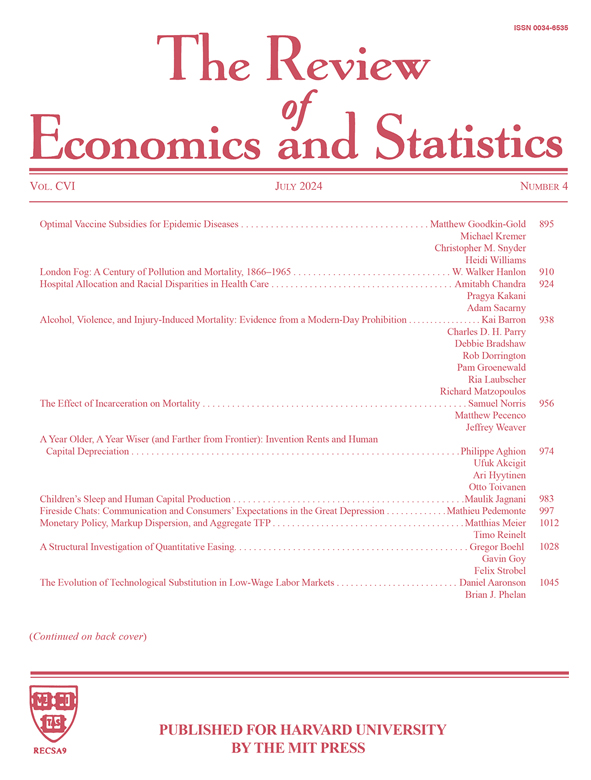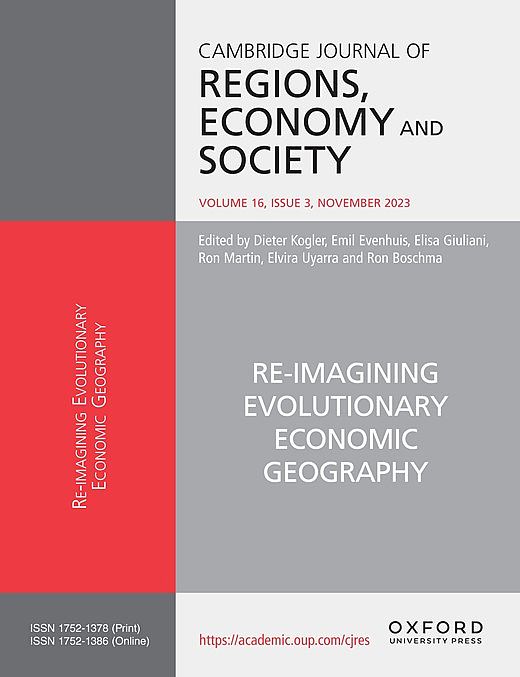Evaluierung von Subventionsprogrammen
Diese Forschungsgruppe untersucht die Effekte von Produktions- und Wissensnetzwerken auf die Produktivität von Unternehmen und Regionen. Darüber hinaus werden Wirkungen staatlicher Förderprogramme für Forschung und Entwicklung sowie regionalpolitischer Programme auf die Leistungsfähigkeit von Unternehmen und Regionen evaluiert.
Zentrum für evidenzbasierte Politikberatung (IWH-CEP)
Forschungscluster
Wirtschaftliche Dynamik und StabilitätIhr Kontakt

Mitglied - Abteilung Präsidialbereich
PROJEKTE
09.2019 ‐ 09.2022
Etablierung einer evidenzbasierten Evaluationskultur für industriepolitische Fördermaßnahmen in Deutschland (EVA-KULT)
Europäischer Fonds für regionale Entwicklung (EFRE)
Das Vorhaben dient dem Ausbau des Zentrums für evidenzbasierte Politikberatung am Leibniz-Institut für Wirtschaftsforschung Halle (IWH-CEP).
01.2018 ‐ 12.2020
Vernetzt wachsen - Innovatives Sachsen-Anhalt durch digitale Geschäftsmodelle (Kompetenzzentrum 4.0)
Bundesministerium für Wirtschaft und Energie (BMWi)
01.2017 ‐ 12.2018
Politische Partizipation in Ostdeutschland
Bundesministerium für Wirtschaft und Energie (BMWi)
12.2015 ‐ 11.2018
Sozioökonomische Effekte der Erforschung innovativer Ansätze für die POC-Diagnostik
Bundesministerium für Bildung und Forschung (BMBF)
Teilvorhaben im Verbundprojekt “POC-Sensorplattform für chronisch-entzündliche Atemwegserkrankungen (EXASENS)”. Neun Leibniz-Institute arbeiten gemeinsam im Pilotprojekt EXASENS an der Erforschung einer Point-of-Care-Technologie zur Vorhersage und Diagnose von chronisch-entzündlichen Atemwegserkrankungen. Der Verbund wird vom Bundesministerium für Bildung und Forschung (BMBF) mit 6,25 Millionen Euro gefördert und liefert einen Beitrag zum Ausbau und zur Stärkung des Themenfeldes Gesundheitstechnologien.
Vgl. Pressemitteilung des Leibniz-Institut für Photonische Technologien (IPHT), Jena.
02.2017 ‐ 02.2018
Bedeutung außeruniversitärer Forschungseinrichtungen für die Entwicklung von Betrieben und Regionen
Bundesministerium für Bildung und Forschung (BMBF)
01.2015 ‐ 12.2016
Evaluierung der GRW-Förderung in Sachsen-Anhalt
Investitionsbank Sachsen-Anhalt
Referierte Publikationen

Professor Qualities and Student Achievement
in: Review of Economics and Statistics, Nr. 1, 2009
Abstract
This paper analyzes the importance of teacher quality at the college level. Instructors are matched to objective and subjective characteristics of teacher quality to estimate the impact of rank, salary, and perceived effectiveness on student performance and subject interest. Student and course fixed effects, time of day and week controls, and students' lack of knowledge about first-year instructors help minimize selection biases. Subjective teacher evaluations perform well in measuring instructor influences on students, while objective characteristics such as rank and salary do not. Overall, the importance of college instructor differences is small, but important outliers exist.

Are Rural Firms Left Behind? Firm Location and Perceived Job Attractiveness of High-skilled Workers
in: Cambridge Journal of Regions, Economy and Society, 2099
Abstract
We conduct a discrete choice experiment to investigate how the location of a firm in a rural or urban region affects the perceived job attractiveness for university students and graduates and, therewith, contributes to the rural–urban divide. We characterize the attractiveness of a location based on several dimensions (social life, public infrastructure and connectivity) and vary job design and contractual characteristics of the job. We find that job offers from companies in rural areas are generally considered less attractive, regardless of the attractiveness of the region. The negative perception is particularly pronounced among persons of urban origin and singles. In contrast, for individuals with partners and kids this preference is less pronounced. High-skilled individuals who originate from rural areas have no specific regional preference at all.














